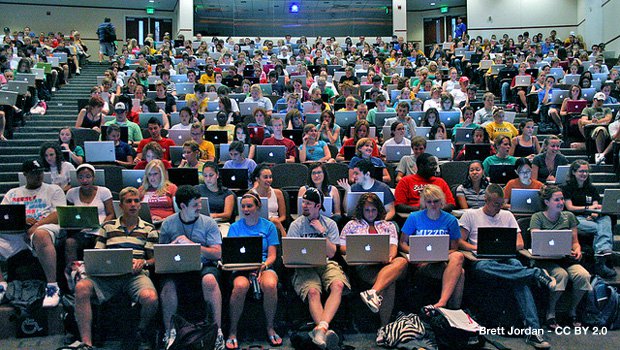The recent learning’s paradigm shift, which puts the student right into the centre of the model, has been analysed by the EU’s responsible for educational policies for years now. The impact of ICTs on these processes enhances this experience and opens new opportunities for teachers, despite there are also certain barriers in specific countries across Europe.
In order to get an accurate vision of this phenomenon, specifically within the universities sector, the EU has recently started a study called “The Changing Pedagogical Landscape – New Ways of Teaching and Learning and Their Implications for Higher Education Policy”, based on the analysis of 26 case studies selected from eight European countries. We are one of the companies invited to join the project, along with the University of Edinburgh and the European Association of Distance Teaching Universities (EADTU). This working group led by Brussels Education Services met last week so that the members could share the roadmap to achieve the objective of having the report completed by June 2015.
New educational models
Enhancing the economic development and the labor market is one of the most important and urgent priorities in the European Union’s agenda. Yet, this goal necessarily needs a modernisation of the higher education system. Bearing this in mind, the role technologies can play here is regarded with great hope as for widening the number of students without disminishing the high quality standards and the fulfillment of the curriculum.
Being able to teach students in remote places, as well as introducing blended classroom models and integrating students from areas not traditionally associated with the university context are only some of the possibilities that can now be achieved thanks to this new scenario.
Towards another European educational policy
The main objective of the study, sponsored by the European Commission, is to formulate recommendations for policy-makers at the level of higher education systems on how to promote and harness new modes of teaching and learning to improve quality and relevance and how formal frameworks can empower and incentivise higher education institutions to exploit their full potential.
It can be proved by observing the results of the strategies adopted by various governments, such as France, Spain, United Kingdom, Netherlands, Poland, Lithuania, Germany or Norway, and also by determining the key factors that influenced the process.
We will begin our contribution to the study taking UPC as a starting point, which will then extend to two more Spanish universities, as well as intermediate accreditation centres and governments. The result of the study will be finally published within the framework of an open seminar that will be held in Brussels next April. There, UPCnet will be able to provide, besides Spain’s whole case study, the technological counterpoint based on its long history of service to the university community.
